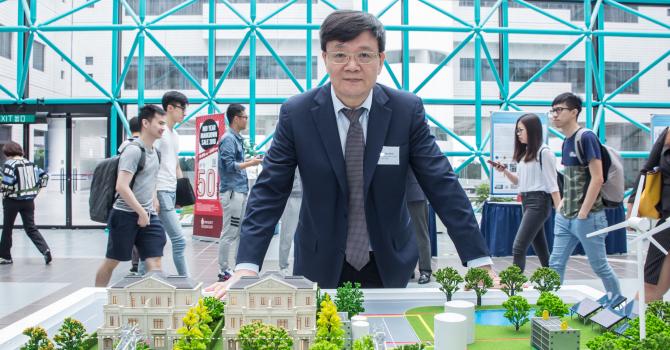Prof. Yoonseob KIM is recognized as the 2024 Early Investigator by ACS PMSE (American Chemical Society, Polymeric Materials Science and Engineering)
The American Chemical Society, Polymeric Materials Science and Engineering (ACS PMSE) Early Investigator Award recognizes early career scientists who have had a significant impact in the form of advances in scientific knowledge, patents, and publications, in the field of polymer science and engineering. As one of the distinguished few non-US awardees, Prof. Kim has been honored for his exceptional accomplishments as an independent PI in the field of solid electrolytes.
Solid Electrolytes and Its Impact
Prof. Yoonseob Kim and his team are developing advanced solid electrolytes for next-generation energy storage applications, including batteries and generation devices such as fuel cells. Their primary focus is to make solid-state and single-ion-conducting ionic covalent organic frameworks (iCOFs) for all-solid-sate Lithium metal batteries. With this aim, his research team synthesizes iCOFs where ionic groups are installed along the pores of the COF backbones to conduct Li+ rapidly and reliably. In addition, the team is developing new iCOFs, such as the ones bearing hypervalent nodes, redox-active moieties, or three-dimensional network topologies.
Prof. Kim’s research has proved that the iCOFs-based batteries have significantly improved safety while keeping the same high performance as those with liquid electrolytes. The iCOFs they developed showed the highest Li+ conductivity of 9.8 mS cm–1 at r.t. and a transference number of 0.92. The iCOFs installed solid-state battery cells showed 188 mAh g–1 at 0.25 C. These findings demonstrate the promise of using redox-active anionic COFs for electrochemical energy storage devices. The adoption of such all-solid-state rechargeable batteries will enhance the robustness, safety, and affordability of electric vehicles, ultimately leading to improved environmental conditions.
Their research has been published and is available in reputable journals, namely Advanced Materials (2021), Journal of the American Chemical Society (2023), Advanced Materials (2023), Angewandte Chemie International Edition (2024), and Advanced Energy Materials (2024).
The Future – More Discoveries and Environmental Contributions
Led by Prof. Kim, his group is at the forefront of electrolyte and membrane science. As Prof. Kim mentioned, “We are also developing new synthetic pathways to make advanced anion exchange membranes for fuel cells.” The team has developed a cationic piperidinium ether-free polymer (polyethylene backbone) by ring-opening metathesis polymerization (ROMP). Their membranes showed a record hydroxide conductivity of 354.3 mS cm−1 at 80 °C while remaining mechanically stable. Membranes also showed excellent alkaline stability, 84.7 % remained after 35 days of treatment with an aqueous KOH solution. This is a noteworthy milestone for the design of cationic polymer for fuel cells toward the development of simultaneously highly stable and conductive anion exchange membranes (Advanced Energy Materials 2022; Angew. Chem. Int. Ed. 2023).
